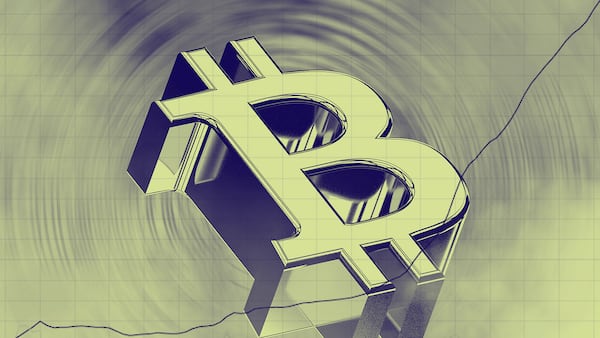- Uniswap gates the code for its latest release behind a Business Source Licence, preventing other developers from using it for four years.
- “To me, this is wrong — taking ideas from the open source community and making them effectively proprietary,” Kenny White, founder of Shell Protocol, told DL News.
DeFi developers are pushing back against Uniswap after it gated the code for its latest release behind a Business Source License, a move that prevents other developers from using it for four years.
The devs complained that many new features outlined in the Uniswap v4 whitepaper are very similar to those rival protocols had previously released.
While these protocols made their code open source — meaning anyone can use the code without its creator’s permission — Uniswap did not. A Business Source License, or BSL, is a tool protocols may employ to limit the use of the code.
Effectively proprietary
The decision casts doubt on Uniswap’s commitment to open source development, and has led some in the DeFi community to question if Uniswap, the top decentralised crypto exchange, plagiarised other protocols’ ideas.
“To me, this is wrong — taking ideas from the open source community and making them effectively proprietary,” Kenny White, founder of Shell Protocol, told DL News.
NOW READ: Uniswap taps Wormhole for bridge deal in win for Jump Trading and defeat for a16z
Shell Protocol is one of several protocols that had previously open source-released features similar to those found in Uniswap’s v4 version.
“It’s a prisoner’s dilemma where making your code exclusive is perhaps better for Uniswap. But if everyone does it, we all lose,” White said.
‘It’s Uniswap’s code and they’re free to choose the licence they see fit.’
— Doug Colkitt
Meanwhile, Uniswap’s defenders counter that it hasn’t copied others’ work, and using a Business Source License is a sound way to protect the venture’s hard work.
“As far as I’ve seen there’s no code plagiarism, just similar design choices,” dcbuilder, a pseudonymous research engineer for crypto identity network Worldcoin, told DL News.
The dustup is just the latest bout of drama to roil Uniswap, a DeFi stalwart with $3.9 billion in total value locked. On June 15, the Uniswap Foundation concluded a fraught selection process for a new cross-chain bridge.
Open source or ‘source available’?
Uniswap released a whitepaper for its v4 version on June 13. While the paper was generally well received, some in the DeFi community took issue with the fact that it branded the release as open source.
Uniswap founder Hayden Adams has since backtracked on Twitter, saying v4 is better described as “source available” rather than open source due to the limitations of the BSL licence. But many still believe Uniswap should fully open source its v4 code.
NOW READ: Deutsche Bank, Citadel Securities signal the crypto land grab is accelerating
“It’s Uniswap’s code and they’re free to choose the licence they see fit,” Doug Colkitt, founder of ambient, another protocol that had previously open source-released features similar to those in Uniswap v4. “Personally I’d encourage Uniswap to do the same, within the spirit of openly sharing ideas,” Colkitt said.
Many DeFi developers believe making code fully open source is beneficial to the industry. It creates opportunities for developers to collaborate and often improves the security of the code as other developers deploy it in new, innovative ways, which can lead to the discovery of unforeseen bugs or vulnerabilities.
‘Dumb forks’
But despite the apparent benefits, other developers are more sympathetic toward Uniswap gating its code.
“Most of us think that BSL makes sense and it’s a decision that keeps many dumb forks from existing,” dcbuilder, said.
Uniswap is currently the top decentralised exchange with over $3.9 billion of deposits. But while Uniswap is currently the dominant exchange, dwarfing direct competitors like Balancer, this wasn’t always the case.
NOW READ: CZ slams ‘scammer entity’ in Nigeria as more Binance copycats emerge
In 2020, Uniswap suffered a so-called “vampire attack” from the then newly-launched exchange Sushiswap. Sushiswap “forked” — or copied — Uniswap’s code to make a new decentralised exchange and gave out generous token rewards to liquidity providers. Using Uniswap’s code but offering higher rewards, Sushiswap attracted over $1 billion of deposits in less than a week, splintering Uniswap’s liquidity in the process and setting the exchange back.
By protecting its code with a BSL licence, Uniswap is likely trying to avoid another Sushiswap situation.
“I think it’s entirely legitimate for Web3 projects to release code under BSL,” Tyler Reynolds, a DeFi angel investor and former Google payments team manager, told DL News. “Given how mobile and mercenary capital is in Web3, it becomes nearly impossible to create a healthy ecosystem for the long run if projects don’t have a way to create a moat and benefit from their hard work.”
Plagiarism accusations
Uniswap has another problem. Several members of the DeFi community have accused it of copying ideas from rival protocols and then trapping them behind the BSL licence.
The problem is that Uniswap worked on its v4 version behind closed doors for months before publicly releasing its whitepaper, while other protocols developed their ideas publicly. This makes it difficult to say if any copying took place, or whether developers simply converged on the same ideas independently.
“There are a lot of similarities between ambient and Uniswap v4 on a protocol level,” Colkitt said. “Some of these ideas we had been quite public discussing for well over a year.”
NOW READ: Uniswap’s v4 gives devs powerful ‘hooks’ tool but there’s a catch — more risk
However, Colkitt said, there was no evidence that Uniswap had directly copied ambient’s code. “These similarities could be the result of them borrowing ideas, convergent evolution or something in between,” he said.
White, who previously said Uniswap “may have plagiarised” Shell Protocol’s code, also weighed in on the issue.
“After talking with the Uniswap team publicly and privately, it seems like they may have arrived at their design independently,” White said.
“However even if you came up with an idea independently, typically you should reference those that came before you,” he said.
Have a tip about DeFi protocols? Contact the author at tim@dlnews.com.



